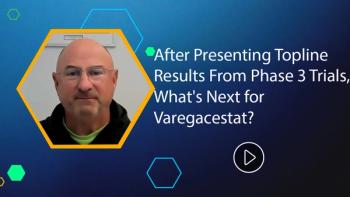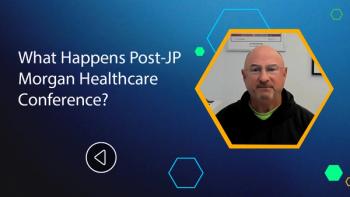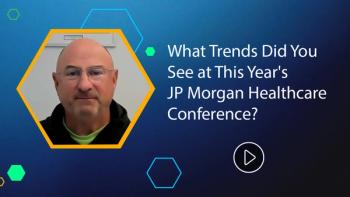
Identifying Illicit Actors vs Compound Pharmacies
Scott Brunner, CEO of the Alliance for Pharmacy Compounding, explains how to identify a compound pharmacy versus and illicit actor.
Scott Brunner, CEO, and Tenille Davis, Chief Advocacy Officer, of the Alliance for Pharmacy Compounding discuss the challenges faced by patients and healthcare providers due to drug shortages, particularly for semaglutide and other medications. It highlighted the role of compounding pharmacies in addressing these shortages and the importance of distinguishing legitimate compounding pharmacies from illicit actors. The conversation also emphasized the need for collaboration between pharmaceutical manufacturers, healthcare providers, and regulatory agencies to improve the drug supply chain and ensure patient access to essential medications.
How can patients identify what a compound pharmacy is versus and illicit actors?
Scott Brunner: So many patients will meet one on one in person with a prescriber. It might be a physician, but it could be a nurse practitioner or a PA the provider in that situation determines that a GLP, one drug, is appropriate for the patient. In this period of shortage, they are likely to determine the compounded version is appropriate for the patient, and that provider will write a script for a compounded drug. I want to make clear, when a patient is prescribed a GLP, one what the provider writes matters the provider can't write. We'll go on the script and hand it to the patient. The patient the patient dashes down to the pharmacy, and the pharmacist looks at the script and says, oh, well, I don't have any of that. I'm going to compound it. It doesn't work that way. If a prescriber wants a patient to have Wegovy, that's what the pharmacy must dispense if it has it.
On the other hand, if the prescriber writes compounded, semaglutide and some dosage strength. That's the script that goes to the pharmacy. In those instances, when the patient is actually interacting with their prescriber, they can have high confidence that the farm the prescriber may recommend a pharmacy or may ask them which pharmacy that do they want to use with GLP ones, not all pharmacies are equipped to prepare those drugs, so it may not always be the normal pharmacy for the patient. One of the things patients can do in that circumstance is say, ‘hey, Doc, have you have you used this pharmacy for long? What do you know about them?’ Prescribers are generally familiar with the pharmacies that they're sending scripts to, and so that's a reasonable question to ask.
We are in this era now, though of telehealth platforms and telehealth platforms have become quite active in dispensing compounded GLP one drugs. Well, a patient who is prescribed a drug via telehealth platform is not meeting in person with that prescriber. It could be via video. It may be synchronous or asynchronous, etc. One of the things that the patient can do in that circumstance, if they want to know that the pharmacy the telehealth platform is sending their prescription to, is to look up the pharmacy on the State Board of Pharmacy website. In order to be a legitimate pharmacy, you have to be licensed by the state in which you reside. The pharmacy resides and any state to which they ship drugs. So, a patient can very easily go to the Board of Pharmacy website, look at the name of the pharmacy. If it's not there, there's a good chance they're not licensed in that state, and they may well be an illicit actor.
We have created APC, the Alliance for pharmacy compounding, has created a tool on our website that we call is it legit? And it is a shortcut for patients to be able to go to the licensee lookup on their State Board of Pharmacy website and type in the name of the pharmacy to make sure that it is indeed a licensed pharmacy. Now, in other instances, patients may want to talk to the prescriber, to the to the pharmacist. Nothing wrong with that. And if you are using a local pharmacy and you want to have some confidence that that GLP-1 drug that has been compounded for you is what it says it is talk to the pharmacist. They're going to tell you about the API they use and how they acquire it, and the third party testing that they do, and a pharmacy that is not willing to have that conversation with a patient is not a pharmacy you want to use.
So as a patient, just asking some questions and maybe letting your fingers do a little bit of walking in in looking up the pharmacy on the board of pharmacy website, are easy ways that you can have confidence that you're dealing with a legitimate, state licensed pharmacy.
Newsletter
Lead with insight with the Pharmaceutical Executive newsletter, featuring strategic analysis, leadership trends, and market intelligence for biopharma decision-makers.




